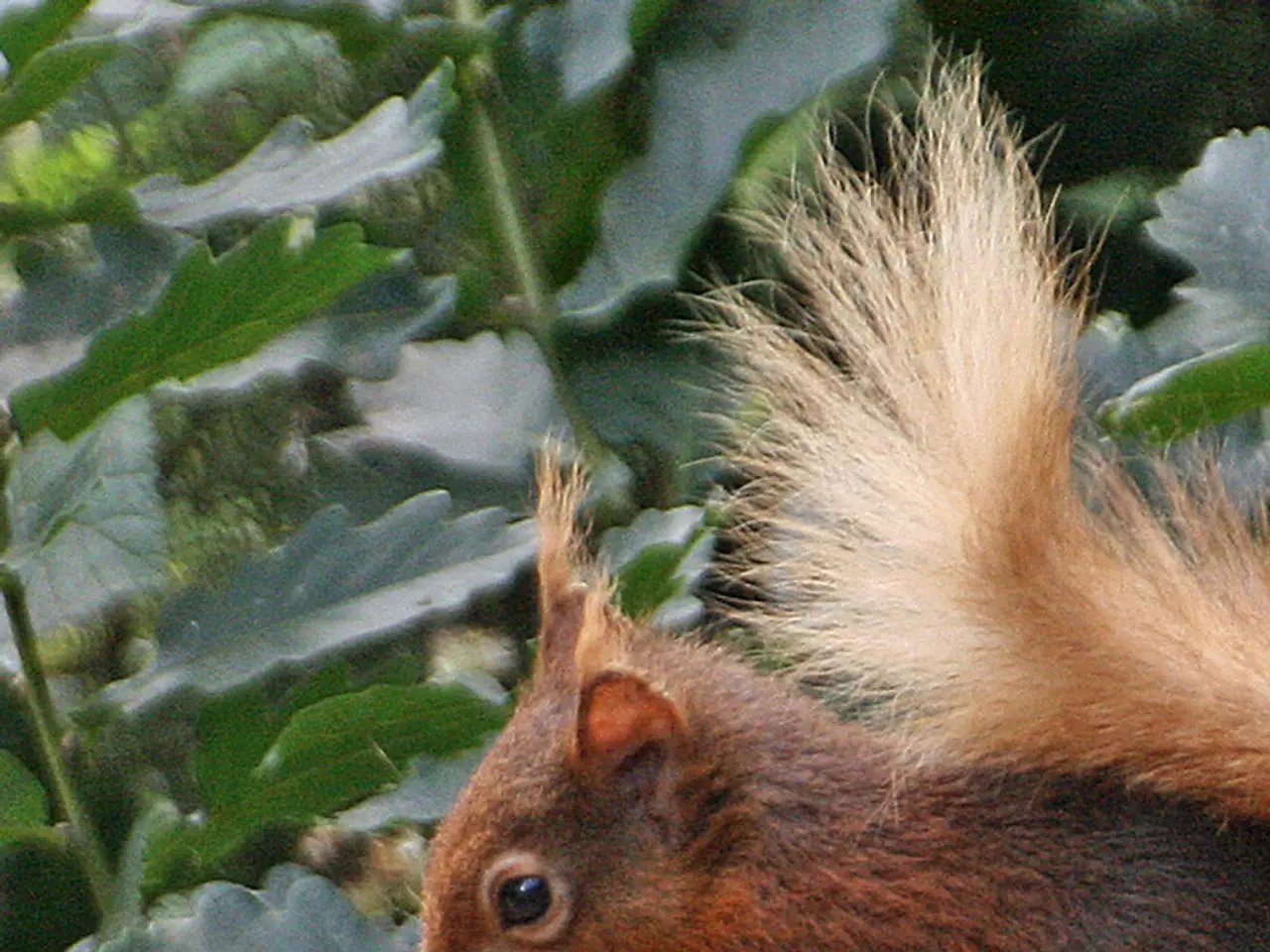Squirrels Feeding on Vegetables: Guarding Your Garden Against Furry Pests
Glen, an experienced gardener with over 15 years of hands-on experience in garden maintenance, design, and landscaping services, shares his tips for creating a squirrel-resistant garden.
Squirrels, omnivores by nature, are known to feast on a variety of garden delights, from tomatoes and leafy greens to fruits and tree bark. As the colder months approach, squirrels increase their food intake to store fat for winter, making vegetable plants an attractive target when food sources like nuts and seeds become scarce.
To deter these garden invaders, Glen recommends combining physical barriers with natural repellents. Burying wire mesh or chicken wire about a foot deep around vegetable beds can prevent squirrels from digging underneath. Solid wood fences, wire mesh, and even chicken wire can be used as barriers, with heights ranging from 1-2 feet to 5-7 feet.
Marigolds and mint are plants that can repel pests due to their strong odors. By incorporating these plants amidst your vegetables, you can mask enticing aromas and act as a deterrent. Incorporating less appealing plants for squirrels, like alliums, can also help.
A homemade cayenne pepper spray can act as a deterrent to many garden invaders, including squirrels. To make your own, mix 1-2 tablespoons of cayenne pepper with a gallon of water, and spray it around your garden.
When food sources like nuts and seeds become scarce in winter, squirrels have limited access to stored food and may gnaw on bark as a last resort. To protect your trees, consider using trunk guards.
Recommended barriers and deterrents to repel or reduce squirrels in a garden also include using squirrel-proof bird feeders, applying taste repellents, and employing motion-activated sprinklers or ultrasonic devices. Commercial squirrel repellents containing predator urines or other agents that elicit a fear response in squirrels can work as a secondary measure.
Creating a thriving garden ecosystem involves selecting a diverse combination of plants and vegetables that complement each other, attract beneficial insects, and deter common garden pests. By following these tips, you can keep your garden healthy and squirrel-free.
Read also:
- Peptide YY (PYY): Exploring its Role in Appetite Suppression, Intestinal Health, and Cognitive Links
- Toddler Health: Rotavirus Signs, Origins, and Potential Complications
- Digestive issues and heart discomfort: Root causes and associated health conditions
- House Infernos: Deadly Hazards Surpassing the Flames








